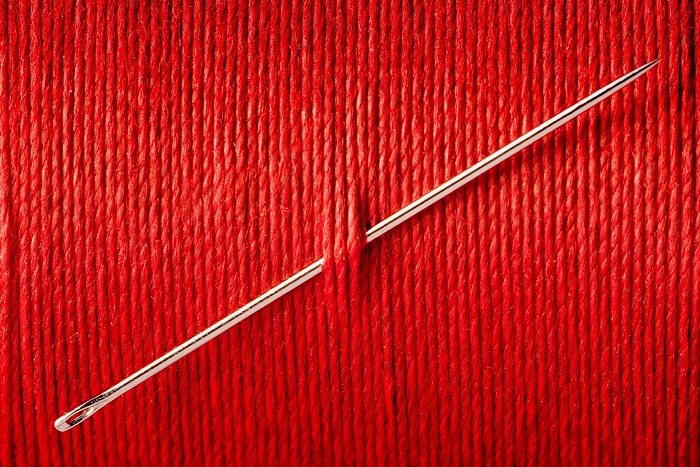Learn about brain health and nootropics to boost brain function
Why you should try micro mastery


In the summer of 2016 I was very unhappy. I was coming up on my year anniversary of living in London, where we had moved from Brooklyn for my husband’s job, but I still felt pitifully lonely and poorly adjusted to the culture. I reentered therapy, tried to socialize often, started volunteering, and focused on doing things for pleasure rather than out of obligation.
But there was one thing that alleviated my sadness more than others: I learned to drive a stick shift.
In Europe, automatics were more expensive to rent, so it was in my best interest to try to overcome any manual driving anxiety head-on. My husband and I decided to spend two weeks in France, and I spent much of that vacation stalling out on country roads, navigating dreaded traffic circles, and ultimately speeding down the highways. When I returned to London I told people about the beaches and baguettes in France, but I mostly wanted to talk about how I could now officially drive stick.
I had discovered the beauty of “micromastery”: working to develop competence in a single, concrete skill. The term was coined by the writers Tahir Shah and Robert Twigger; Twigger later published his 2017 book, Micromastery: Learn Small, Learn Fast, and Unlock Your Potential to Achieve Anything, which contains instructions for laying a brick wall, making sushi, and brewing beer. In the introduction, Twigger writes that he was stymied by the idea that he had to work for years to acquire any truly valuable skill, but that he still wanted to learn and create, so he decided to focus on making the perfect omelet: his first micromastery.
A micromastery isn’t about spending 10,000 hours becoming an expert at something. It typically requires a much smaller commitment (though can vary based on the skill). A micromastery can be learning to fold fitted sheets, for example. You also don’t have to choose something banal and useful: You could learn to read hieroglyphics or dance the tango, rather than change a flat tire or fix a leaky faucet. Because the skills tackled in a micromastery are often simple and always repeatable, it almost always guarantees a payoff.
Recently I started a micromastery club with a fellow writer and friend, Angela Chen. You definitely don’t need another person to do a micromastery, but Angela and I had similar gripes about our lives. Like many millennials, we were burned out from doing too much, but simultaneously embarrassed by our lack of practical skills, so it felt natural to join forces. Plus, doing micromastery with a friend alleviated some of the isolation I felt as the primary caregiver to two very small children.
Our first micromastery was basic sewing. It had long frustrated me that I had to outsource something as simple as replacing a button. We relied on YouTube tutorials for everything from threading a needle to tying off a knot. To learn how to stitch up a hole, we watched and rewatched a video of a high schooler mending a sweater.
After 90 minutes we could confidently sew a button and fix minor rips and tears (I used my newfound skill to repair a beloved tote). Knowing my household was now a little more sustainable made me feel accomplished, and being so absorbed in a project gave me a sense of calm. It was like self-care, without the pesky guilt of spending money on a massage (unless you count the $4.99 for travel sewing kits, it was free).
Micromastery can have health benefits as well.
As you become more engrossed in your endeavor to learn a new skill, you can enter what Czech psychologist Mihaly Csikszmentmihalyi famously called a “flow state”: a mode “in which people are so involved in an activity that nothing else seems to matter.” Flow is the way many of us played as children: effortlessly mindful and engaged. In our era of endless distraction, taking attention away from the to-do list and redirecting it to a concrete activity can be a significant salve for the mind. A “flow” experience is analogous to meditating, which has been shown to improve focus and decrease anxiety.
Doing a successful micromastery also boosts confidence. “You will develop skills that are transferable between micromasteries — rapid learning, structural information about knowledge acquisition, performance skills, memory improvement — which is an empowering thing,” writes Twigger.
It might also keep your brain healthy. While there are many factors that contribute to cognitive decline, such as genetics and poor diet, research suggests that challenging yourself intellectually might help to stave off symptoms of dementia and Alzheimer’s. A 2013 study published in the Journal of Aging and Health, which provided over 2,000 seniors with different types of brain training and followed up with them periodically over the course of ten years, concluded that “results support the effectiveness of cognitive intervention in maintaining cognitive health over the long-term.”
Weeks after our initial micromastery, I’m still reflecting on the benefits. After eight months of poor sleep — thanks to my eight-month-old — I often worry that I am not as sharp as I once was, and it’s nice to be reminded that I’m capable of learning things at all. As a writer, my profession involves a lot of thinking, and it is gratifying to work with my hands and actually touch the product of my labor.
Angela and I are keeping a running document of micromastery ideas. We’re going to learn to play pool next, followed by how to make pie crust, and how to cut our own hair. Twigger suggests finding experts to help with initial instruction, so if you know how to do any of those things, be in touch. In the meantime, I’ll get to work fixing every frayed seam in my closet.
Via Medium.com
Click here to view full article